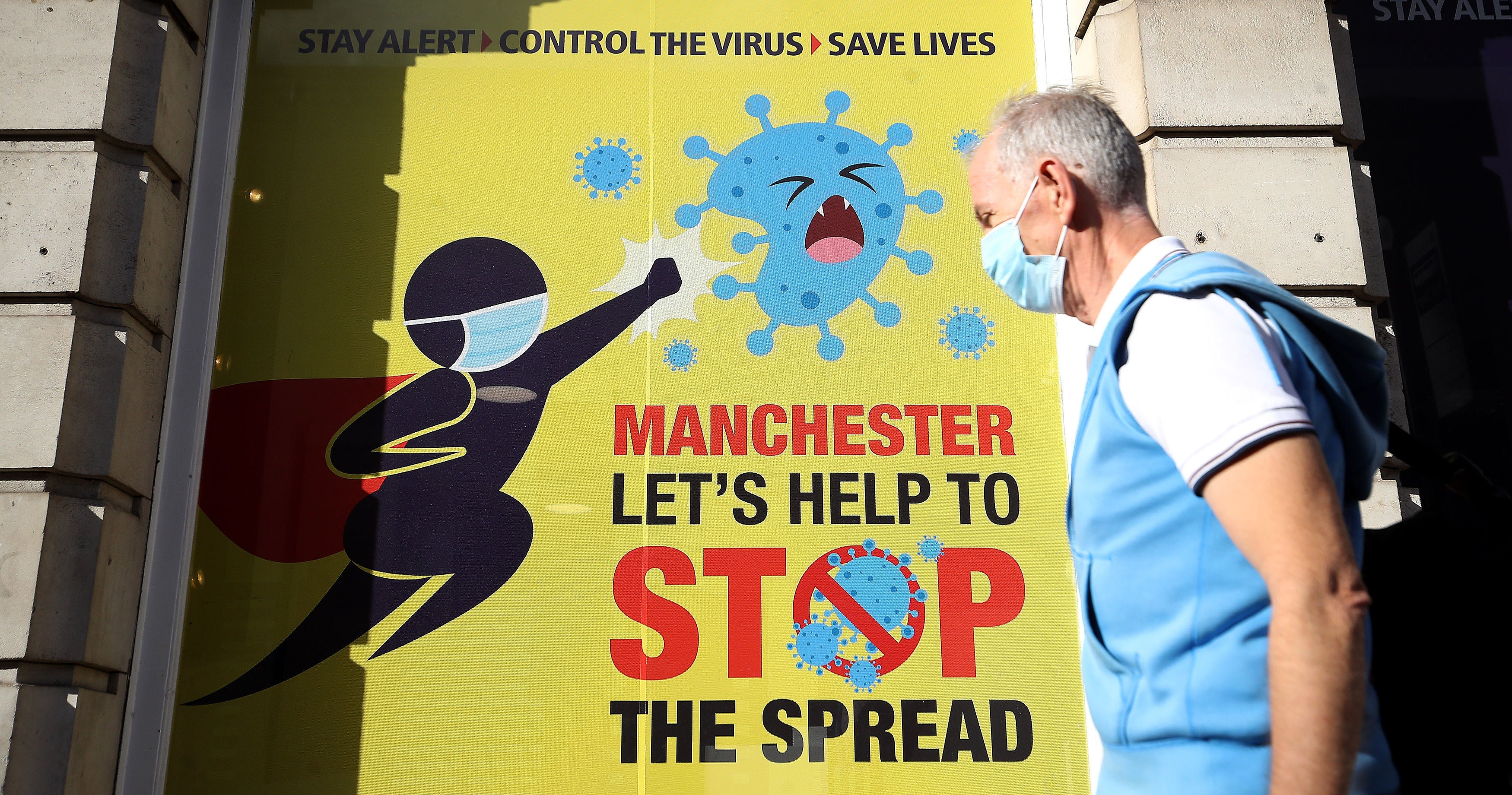UK faces ‘continual lockdowns’ unless government pays people to self-isolate, Independent Sage warns
Scientists say people should not lose out financially when self-isolating or they will not do it

Your support helps us to tell the story
From reproductive rights to climate change to Big Tech, The Independent is on the ground when the story is developing. Whether it's investigating the financials of Elon Musk's pro-Trump PAC or producing our latest documentary, 'The A Word', which shines a light on the American women fighting for reproductive rights, we know how important it is to parse out the facts from the messaging.
At such a critical moment in US history, we need reporters on the ground. Your donation allows us to keep sending journalists to speak to both sides of the story.
The Independent is trusted by Americans across the entire political spectrum. And unlike many other quality news outlets, we choose not to lock Americans out of our reporting and analysis with paywalls. We believe quality journalism should be available to everyone, paid for by those who can afford it.
Your support makes all the difference.Britain faces the prospect of "continual lockdowns" unless the government provides proper financial support for people told to self-isolate, an influential group of scientists has said.
Independent Sage said that while the Covid-19 lockdown imposed in England this week would get likely cases under control, a similar policy would be needed again next year unless the test, trace, isolate, and support system was fixed quickly.
Sir David King, the former chief scientific advisor to Tony Blair and Gordon Brown who chairs the shadow committee, said people who were told to self-isolate needed to be sure that "they will not suffer by isolating" and that the government's strategy of simply fining people who break the rules was not working.
The government has provided minimal support through the benefits system to help the very lowest paid when they are asked to remain in doors, but most people who would miss shifts due to self-isolating have few rights to have their incomes topped up.
Ministers have also resisted calls to boost the UK's meagre statutory sick pay rates, which are among the lowest in Europe.
"We need to get ourselves into the position where this is the last lockdown the country goes into and in order to achieve that we need an end strategy that we know will work," Sir David told journalists on Friday afternoon.
"That means end strategy quite simply is to move away from the blunt instrument of lockdown into the focused instrument of finding, testing, tracing, isolating, and supporting all new cases within 24 hours."
Sir David added: "The two key words in this find, test, trace, isolate and support system - are 'isolate' and 'support'. We don't believe there's been anything like a focus on this - we don't hear this coming from the government's or the government's advisors.
"What we mean by 'support' has to be a rather complex process whereby everyone who is asked to isolate is understanding that they will not suffer by isolating.
"There's no point in continuing to use the threat of a whip to say we're going to fine you £10,000 if you don't isolate, if a person who has been informed that they should isolate ignores it precisely because they would lose their income if they are paid weekly or daily."
Professor Anthony Costello of University College London, who also sits on the committee said: |Failure to reform and improve the performance of the find, test, trace and isolate system, will mean earlier and more frequent circuit breakers and lockdowns."
Assessing the latest official figures, the Independent Sage scientists said there was early evidence that the government's tier three restrictions had been working to bring cases under control in local areas - though cases were continuing to rise in tier two and tier one areas.
Tier three areas are almost entirely locked down, with prohibitions on socialising and the closure of pubs that are not serving substantial meals. Boris Johnson has said he expects England to return to the tiered and localised system in early December when the current month-long lockdown ends.
Independent Sage's scientists also said figures appeared to show a drop-off in the infection rate during the school half term holidays, suggesting that schools do in fact spread the virus. There has been debate about whether schools are major vectors of infection because of most children's asymptomatic reaction to the virus.

Join our commenting forum
Join thought-provoking conversations, follow other Independent readers and see their replies
0Comments